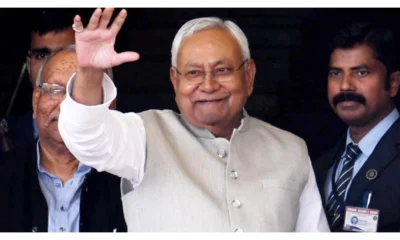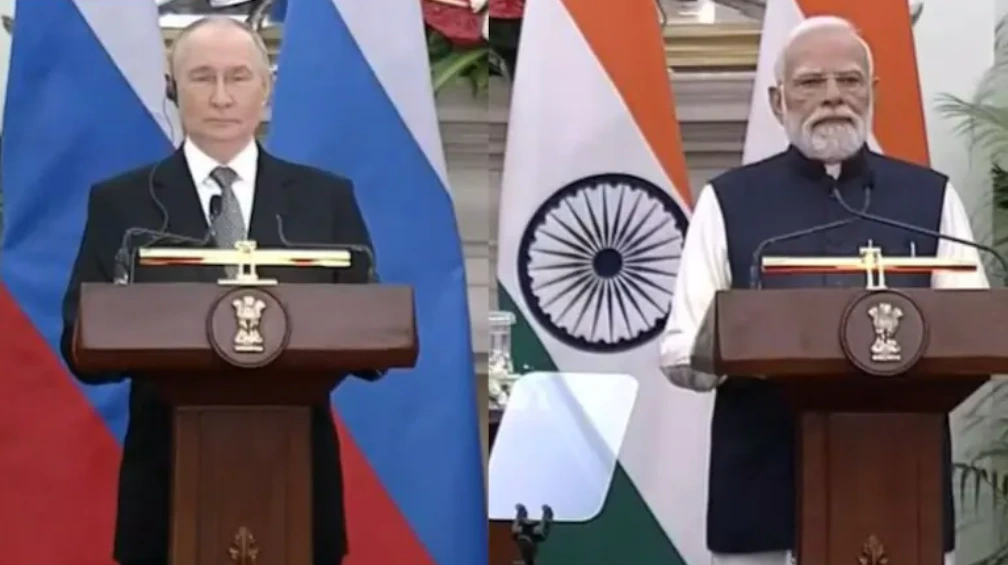With the political grapevine abuzz with speculation that Prime Minister Narendra Modi could recommend advancing of the general elections scheduled for May 2019 to later this year, finance minister Arun Jaitley presented the incumbent NDA government’s last Union Budget on Thursday (February 1).
Here are the highlights:
On economic indices:
Finance Minister Arun Jaitley says the average GDP growth rate for three years of the NDA government has been 7.5 per cent. GDP growth for current fiscal at 6.3 per cent while Jaitley says the economy will grow at 7.2 to 7.5 per cent in the second half of the next fiscal. Country firmly on course to achieve over 8 per cent growth as manufacturing, services and exports back on good growth path, said the finance minister.
Fiscal deficit target for financial year 2018-2019 pegged at 3.3 per cent of the GDP. Revised fiscal deficit for 2017-18 stands at Rs 5.95 lakh crore or 3.5 percent of GDP.
Government will make efforts to lower debt to GDP ratio to 40 per cent
Railways:
With the government doing away with the tradition of presenting a separate Railway Budget since the last financial year, the Union finance minister also made budgetary allocations for the Indian Railways in his budget speech. Railway Capex for FY19 has been pegged at Rs 1.48 lakh crore; a 13 per cent increase from the FY18 estimate of Rs 1.31 lakh crore.
Key announcements regarding the railways included:
- Government to procure 700 locomotives, 5160 coaches and 12000 new wagons
- Railway stations across the country that have an over 25000 footfall to get escalators, all railway stations to get free Wi-Fi and CCTV installations
- 160-km suburban railway network to be developed for Bengaluru with an allocation of Rs 17000 crore
- Rs 11000 crore allocated for the Mumbai suburban railway network
- Efforts will be made to eliminate 4267 unmanned level crossings over the next 2 years
Aviation sector:
The Finance Minister Arun Jaitley said that the government is aiming to expand airport capacity by 5 times to handle 1 billion trips a year with an allocation of Rs 60 crore being made towards new airport expansion projects. Government aims to bring 56 unserved airports and 31 unserved helipads under the regional air connectivity scheme – Ude Desh ka Aam Nagrik (UDAN).
Agriculture and allied services sector:
With Prime Minister Narendra Modi recently acknowledging his government’s failure in suitably tackling and containing farmer unrest, the biggest chunk of positive announcements and allocations were reserved for the agriculture sector. This is largely on expected lines since the Modi government faces its stiffest electoral challenge from the vast majority of the country that is dependent on the agricultural economy in one way or the other.
- The Minimum Support Price for Kharif Crops has been set at 1.5 times of the production cost
- An Agri-Market Development Fund with a corpus of Rs 2000 crore to be set up for developing agricultural markets across the country; 22,000 rural haats to be developed and upgraded into Gramin Agricultural Markets to protect the interests of 86% small and marginal farmers.
- Government to launch “Operation Greens” with an allocation of Rs 500 crore to address price fluctuations in potato, tomato and onion for benefit of farmers and consumers
- Allocation for the food processing sector doubled from Rs 715 crore of the last fiscal to Rs 1400 crore for FY19, growth projection for food processing industry pegged at an average of 8 per cent per annum
- Allocation of Rs 10,000 crore made for fisheries, aqua-culture and animal husbandry funds. Kisan Credit Card scheme to be extended to fisheries and animal husbandry sector.
- Rs 1,290 crore allocated for re-structured National Bamboo Mission
- Institutional credit for agriculture raised to Rs 11 lakh crore for FY19 from Rs 8.5 lakh crore of 2014-15
Tax proposals:
Contrary to expectations, the finance minister made no changes in the personal income tax slabs. However, a slew of cosmetic measures have been announced as part of the tax proposals proposed in the budget. These are:
- Standard Deduction of Rs. 40,000 in place of present exemption for transport allowance and reimbursement of miscellaneous medical expenses. Jaitley says the move will benefit 2.5 crore salaried employees and pensioners.
- Proposal to extend reduced rate of 25 percent currently available for companies with turnover of less than Rs 50 crore (in Financial Year 2015-16), to companies reporting turnover up to Rs. 250 crore in FY 2016-17, to benefit micro, small and medium enterprises.
- No adjustment in respect of transactions in immovable property where Circle Rate value does not exceed 5 percent of consideration.
- Deduction of 30 percent on emoluments paid to new employees Under Section 80-JJAA to be relaxed to 150 days for footwear and leather industry, to create more employment
- 100 percent deduction proposed to companies registered as Farmer Producer Companies with an annual turnover up to Rs. 100 crore on profit derived from such activities, for five years from 2018-19
A slew of measures have also been announced for Senior Citizens. These are:
- Exemption of interest income on deposits with banks and post offices to be increased from Rs. 10,000 to Rs. 50,000
- TDS not required to be deducted under section 194A. Benefit also available for interest from all fixed deposit schemes and recurring deposit schemes.
- Hike in deduction limit for health insurance premium and/ or medical expenditure from Rs. 30,000 to Rs. 50,000 under section 80D.
- Increase in deduction limit for medical expenditure for certain critical illness from Rs. 60,000 (in case of senior citizens) and from Rs. 80,000 (in case of very senior citizens) to Rs. 1 lakh for all senior citizens, under section 80DDB.
- Proposed to extend Pradhan Mantri Vaya Vandana Yojana up to March, 2020. Current investment limit proposed to be increased to Rs. 15 lakh from the existing limit of Rs. 7.5 lakh per senior citizen.
Other tax proposals:
- To control cash economy, payments exceeding Rs. 10,000 in cash made by trusts and institutions to be disallowed and would be subject to tax.
- Tax on Long Term Capital Gains exceeding Rs. 1 lakh at the rate of 10 percent, without allowing any indexation benefit.
- Proposal to introduce tax on distributed income by equity oriented mutual funds at the rate of 10 percent.
- Proposal to increase cess on personal income tax and corporation tax to 4 percent from current rate of 3 per cent.
- Roll out E-assessment across the country to almost eliminate person to person contact leading to greater efficiency and transparency in direct tax collection.
Rural economy and subsidy benefits:
Loans to Self Help Groups of women increased to about Rs 42,500 crore in 2016-17, growing 37 per cent over previous year. In FY19, loans to SHG to be increased to Rs.75,000 crore.
Allocation to National Rural Livelihood Mission pegged at Rs 5750 crore for fiscal 2018-19
Under Ujjwala Scheme, free LPG connections to be given to 8 crore poor women instead of the previous year’s target of 5 crore women
Outlay of Rs 16000 crore for providing electricity connections to 4 crore households under Saubahagya Yojana
Over 1 crore houses to be built in rural areas by March 2019 under the government’s Housing for All project
Total amount to be spent by all central ministries for creation of livelihood and infrastructure in rural areas pegged at Rs.14.34 lakh crore, including extra-budgetary and non-budgetary resources of Rs.11.98 lakh crore. This expenditure is expected to create employment of 321 crore person days, 3.17 lakh kilometers of rural roads, 51 lakh new rural houses, 1.88 crore toilets, and provide 1.75 crore new household electric connections besides boosting agricultural growth
Education and Social Preotection
Estimated budgetary expenditure on health, education and social protection for 2018-19 pegged at Rs.1.38 lakh crore against estimated expenditure of Rs.1.22 lakh crore in 2017-18.
Finance Minister announces setting up of Ekalavya Model Residential School on par with Navodaya Vidyalayas to provide quality education to tribal children by 2022 in every block with more than 50 per cent Scheduled Tribes population and at least 20,000 tribal persons
In a bid to increase investments in research and related infrastructure in premier educational institutions, including health institutions, new program titled Revitalising Infrastructure and Systems in Education (RISE) announced with a total investment of Rs.1,00,000 crore to be made over the next four years.
Allocation on National Social Assistance Programme this year has been kept at Rs. 9975 crore
Health
Finance Minister announced what he called the “world’s largest government funded health care programme” titled National Health Protection Scheme. This scheme will cover over 10 crore poor and vulnerable families (approximately 50 crore beneficiaries) providing coverage of up to Rs 5 lakh per family per year for secondary and tertiary care hospitalization.
Other announcements:
– Rs 1200 crore allocated for the National Health Policy
– Allocate an additional Rs.600 crore for providing nutritional support to all TB patients at the rate of Rs.500 per month
– Government to set up 24 new Government Medical Colleges and Hospitals by upgrading existing district hospitals
MSME sector and employment generation
A sum of Rs. 3794 crore has been provided for giving credit support, capital and interest subsidy and for innovations
Target of Rs.3 lakh crore for lending under MUDRA Yojana in FY19
Government will contribute 12 per cent of the wages of the new employees in the EPF for all the sectors for next three years. Amendments to be made in the Employees Provident Fund and Miscellaneous Provisions Act, 1952 to reduce women employees’ contribution to 8 per cent for first three years of their employment against existing rate of 12 per cent with no change in employers’ contribution
The Budget proposed an outlay of Rs.7148 crore for the textile sector in 2018-19 as against Rs.6,000 Crore in 2016
Infrastructure sector
The Fuinance Minister announced an increase of budgetary allocation in the infrastructure sector for 2018-19 to Rs.5.97 lakh crore against estimated expenditure of Rs.4.94 lakh crore in 2017-18.
The Budget proposes to develop 10 prominent tourist sites into Iconic Tourism destinations
Under the Bharatmala Pariyojana, about 35000 kms road construction in Phase-I at an estimated cost of Rs.5,35,000 crore has been approved
Digital Economy
NITI Aayog to initiate a national program to direct efforts in artificial intelligence. Department of Science & Technology will launch a Mission on Cyber Physical Systems to support establishment of centres of excellence for research, training and skilling in robotics, artificial intelligence, digital manufacturing, big data analysis, etc.
The Budget doubled the allocation on Digital India programme to Rs 3073 crore in 2018-19
Disinvestment
The Finance Minister claimed that the disinvestment target for the current fiscal – set at Rs.72,500 crore – has been exceeded and receipts of Rs.1,00,000 crore are expected. A disinvestment target of Rs.80,000 crore has been set for 2018-19.
The budget proposes merging of 3 Public Sector Insurance companies – National Insurance Co. Ltd., United India Assurance Co. Ltd., and Oriental India insurance Co. Ltd – into a single insurance entity.
Big gains for President, Vice President, Governors and MPs
Budget proposes to revise emoluments to Rs.5 lakh for the President, Rs 4 lakhs for the Vice President and Rs.3.5 lakh per month to Governors of respective States.
Emoluments paid to the Members of Parliament to be revised with effect from April 1, 2018 and then a law will also provide for automatic revision of emoluments every five years indexed to inflation

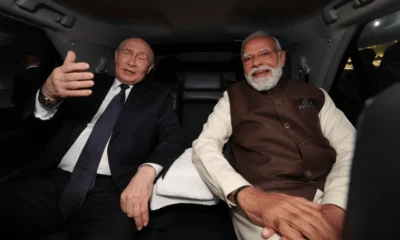
 India News23 hours ago
India News23 hours ago
 India News22 hours ago
India News22 hours ago
 Cricket news22 hours ago
Cricket news22 hours ago
 India News7 hours ago
India News7 hours ago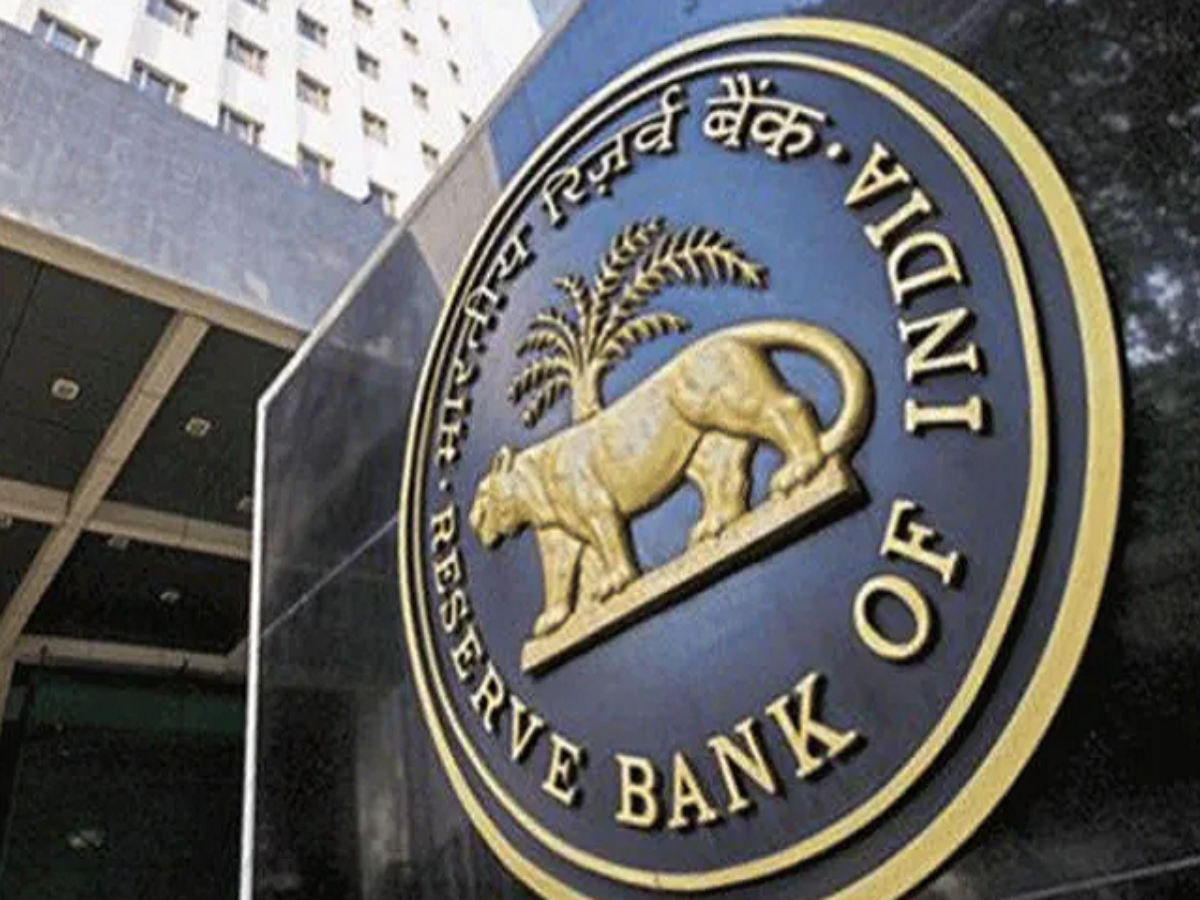
 India News7 hours ago
India News7 hours ago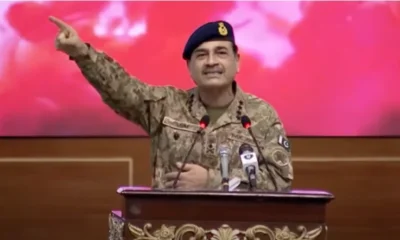
 Latest world news7 hours ago
Latest world news7 hours ago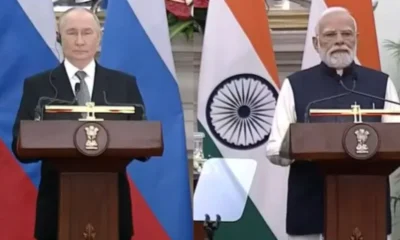
 India News2 hours ago
India News2 hours ago
 Entertainment2 hours ago
Entertainment2 hours ago



